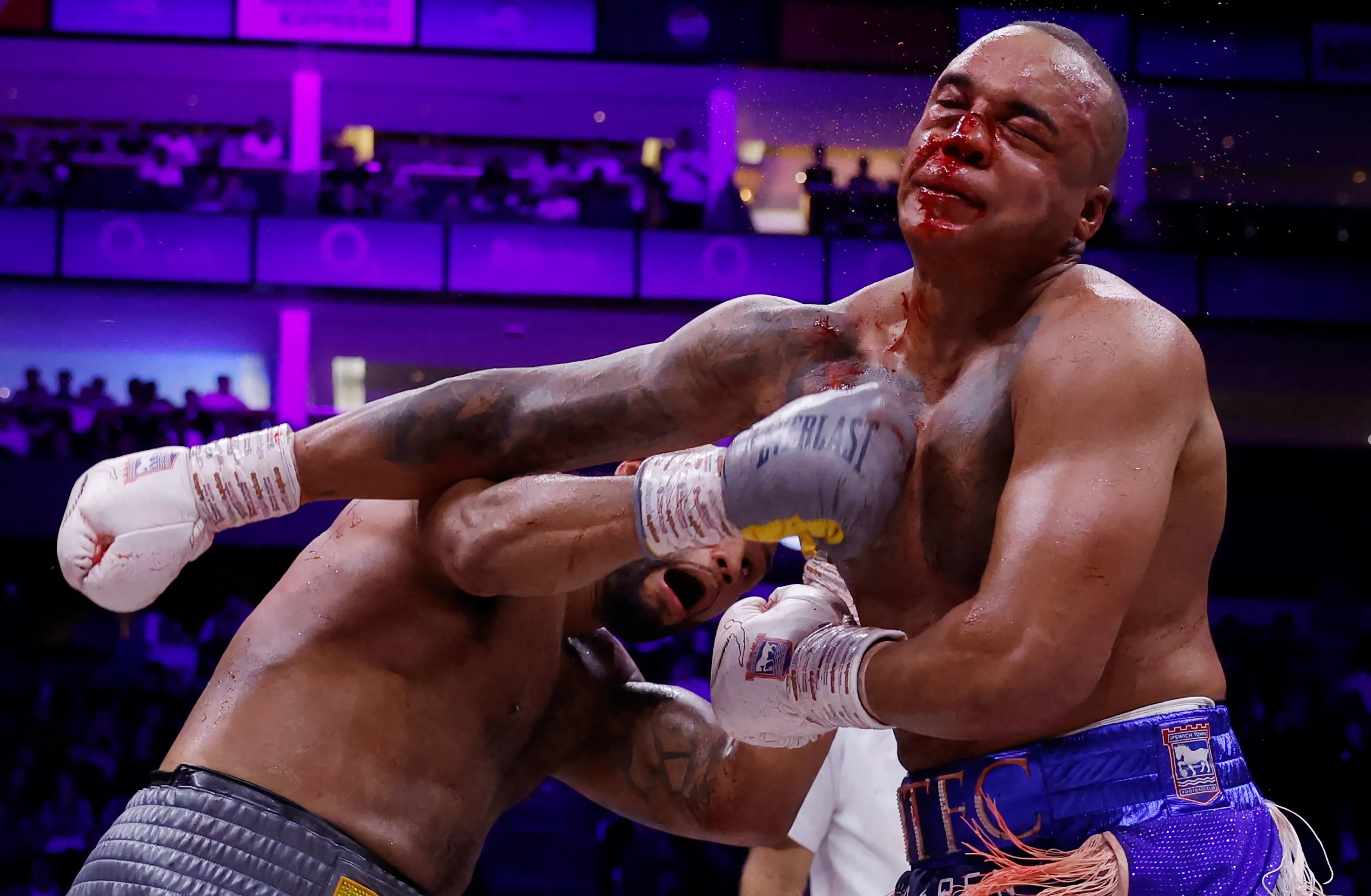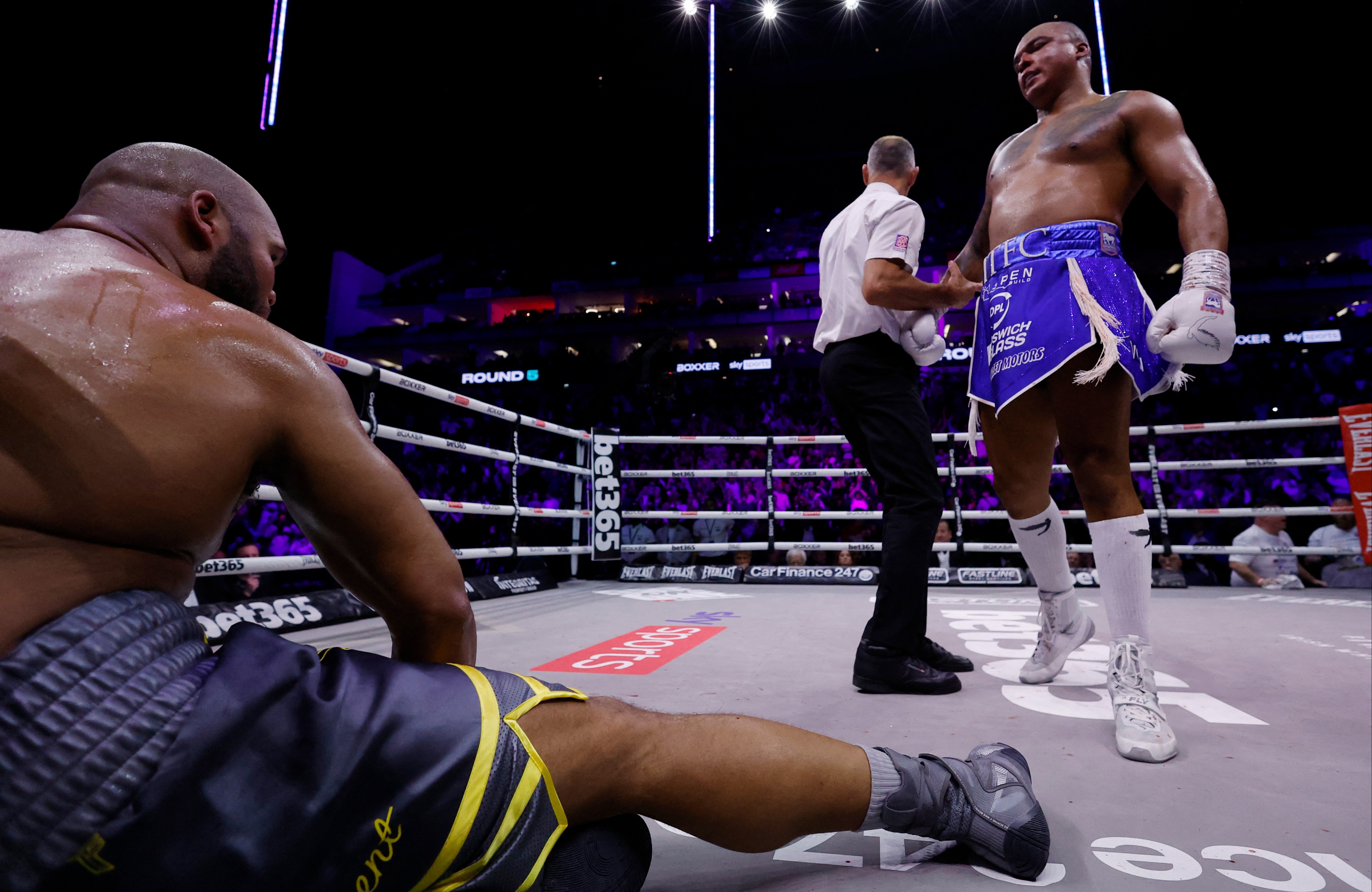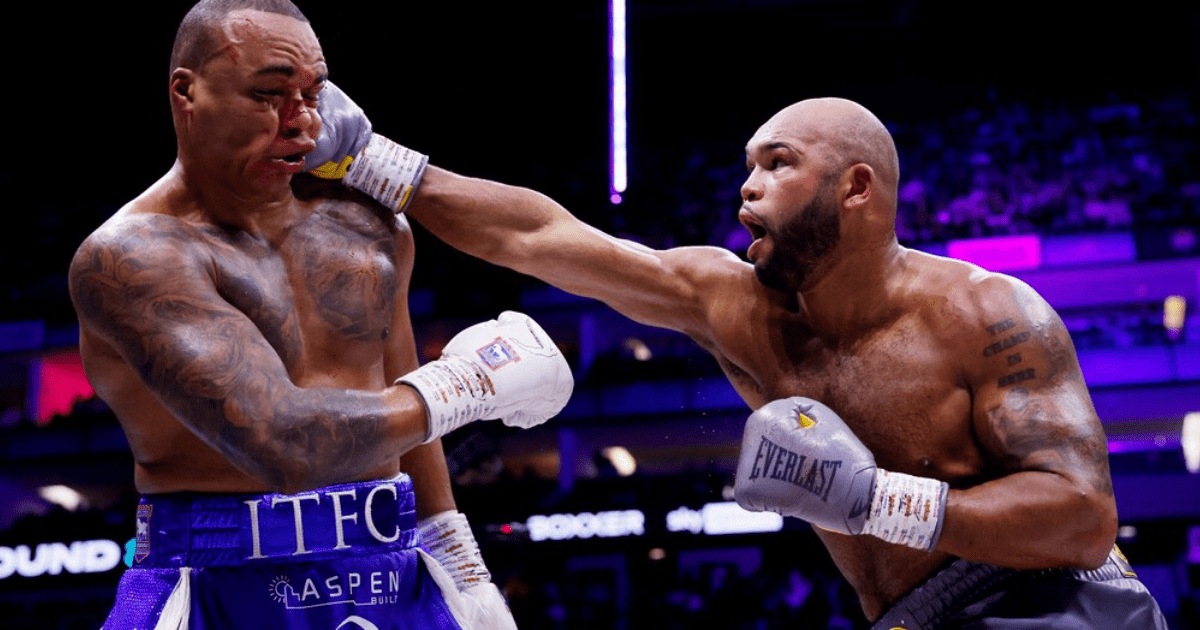Bloody Battle Ends in Medical Attention
Sky Sports had to cut short their interviews with Fabio Wardley and Frazer Clarke after both boxers required immediate medical assistance following their intense draw in London. The heavyweight showdown concluded with a bloody brawl, leaving both men in need of medical attention.
Fabio Wardley, left, and Frazer Clarke, right, fought to a bloody draw
Post-Fight Chaos
After the match, Sky Sports commentators revealed that neither boxer would be available for interviews as they were being treated for their injuries. Typically, fighters are interviewed immediately after the decision is made, but this time, medical attention took precedence.
 Wardley, right, was left with a busted, broken nose
Wardley, right, was left with a busted, broken nose
 Clarke was dropped heavily in the fifth round but recovered to finish the fight
Clarke was dropped heavily in the fifth round but recovered to finish the fight
Severe Injuries
British champion Wardley, 29, sustained a severe broken nose during the fight, with blood visible throughout. Additionally, he continued fighting despite a badly swollen eye. On the other hand, Olympic bronze medallist Clarke faced significant damage, including being dropped heavily in the fifth round.
Post-Fight Interviews and Reactions
Following the match, Clarke conducted an interview, expressing disappointment at not bringing the title back to the dressing room. Despite Wardley's injuries, the fighters showed sportsmanship as Clarke visited Wardley in his dressing room, leading to a humorous exchange between the two.

“Oh, won't you f*** off, mate?”
Frequently Asked Questions
What kind of diet should a novice boxer follow?
A boxer who is a novice should eat a healthy diet. This will help him recover from intense training and fuel his workouts. The general recommendation is to eat a combination of carbohydrates and proteins for energy. Lean protein helps repair and grow muscles, while healthy fats are good for your overall health. As well, vitamins, minerals and hydration are essential. A sports nutritionist will be able to provide a customized diet plan tailored to the boxer’s training regime and weight class goals.
How can amateur boxers become professional?
The transition from amateur boxing to professional requires a significant increase in training intensity and mental preparation. An amateur boxer must establish a strong track record of performance, typically honing skills in various local and national competitions. A professional boxing licence is essential, as are experienced managers and coaches who can help guide your career and secure professional bouts.
Can anyone learn to box?
Even though boxing may be accessible to all, not everyone is cut out to compete professionally. Boxing is a sport that requires a special combination of physical strength, mental toughness, talent and dedication. The sport has inherent risks that potential boxers will have to be willing and able to take. A thorough evaluation by a trainer will help determine the potential of a person to have a successful career in boxing.
How important is mental strength in professional boxing?
Mental toughness and physical conditioning are equally important in professional boxing. The sport demands resilience, focus, the ability to handle pressure, and the psychological fortitude to overcome adversity. Mental preparation involves visualization, stress management techniques, and developing a strong mindset to confront the challenges within the ring. A boxer without mental toughness may find it difficult to perform well under the extreme conditions of a professional competition.
Does learning professional boxing have an age restriction?
Professional boxing does have age restrictions. Most boxing organizations require boxers to be 18 years old or older before they can fight professionally. At the upper end of the spectrum, there is no age limit per se, but physical ability and health will limit an individual’s ability to compete safely. It’s crucial for older athletes to be thoroughly assessed for fitness and risk before taking up the sport professionally.
How do boxers control their weight and maintain their weight classes?
Boxers keep their weight under control by following a rigid diet and a specific training program. Nutritionists will help develop a weight loss plan for boxers that is based on their goals and doesn’t compromise nutrition or training energy. Consistent exercise and regular check-ins on weight are crucial, especially as a fight approaches. Weight management is an important strategic process. If done incorrectly it can lead to poor performance or health issues.
What roles do managers and promoters play in a boxer’s professional career?
Promoters and managers play an important role in a boxer’s professional career. Managers are responsible for guiding the boxer’s career path, negotiating contracts, and handling the business affairs of the boxer. They also provide support in selecting the right fights and looking after the boxer’s interests. The promoters focus more on organizing events, marketing fights and attracting sponsors and audience attention. This increases a boxer’s public profile and earnings potential.
Statistics
- Research shows that a boxer’s reaction time is typically under 0.25 seconds, honed through repetitive drills and sparring.
- Cardiovascular fitness is critical, with a focus on high intensity interval training, comprising up to 40% of a boxer’s conditioning program.
- Reports suggest that successful professional boxers can earn upwards of 50 times more than the median purse for entry-level professionals per fight.
- A study showed that most professional boxers have spent more than 4 years in training before their first professional bout.
- The average age for boxers to turn professional is between 18 to 25 years, though many continue to compete well into their 30s and beyond.
- Nutrition experts emphasize that over 70% of a boxer’s diet should focus on carbohydrates and proteins for energy and recovery.
- Professional boxers typically train 4 to 6 hours per day, 5 to 6 days a week, depending on their fight schedule.
External Links
ibhof.com
expertboxing.com
usaboxing.org
ringtv.com
boxingnewsonline.net
titleboxing.com
boxingscene.com
How To
How to analyze and learn from professional boxers
Understanding the sport better by learning from professionals can be a huge help. Watch the bouts carefully to learn about their movements, techniques and tactics. Focus on how they adjust to the different opponent, how to control their pace and defensive skills. Break down their combinations and footwork–seeing what works well and why. Watch their demeanor and mental fortitude under pressure. Supplement this by reading their interviews and learning about their training routines and philosophies. You can integrate this knowledge into your training and mentality.

